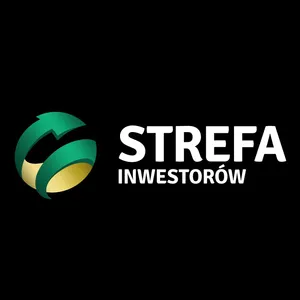Podcast Summary
The Importance of Investing in the World: Investing is a crucial step towards making positive changes and creating progress in our world. Individuals and corporations can make a difference by putting resources towards meaningful projects.
Investing in the world is a powerful way to make a difference and improve our future. Repeating it multiple times may seem redundant, but the importance of this action cannot be overstated. Whether you're an individual or a corporation, investing in the world means putting resources towards making positive changes. It's an essential step to create progress and transform the world for the better. Today, we discussed the importance of investing and how it can lead to significant improvements in our product and the world at large. Let's all commit to investing, and together, we can create a brighter future.
Investing in the future is crucial: Focusing on the future and repeating good practices can make a positive impact on many lives
It's essential to invest in the future and repeat good practices consistently. The speaker emphasized this point numerous times throughout the discussion. They believe that by doing so, we can make a positive impact on the lives of many people. The importance of investing in the future was a recurring theme, with the speaker expressing their conviction that it's a good idea and a crucial part of what we have to do. While there may have been some uncertainty regarding specific questions, the overall message was clear. By focusing on the future and repeating good practices, we can make a significant difference.
Expressing belief in the beauty and importance of a place: The speaker emphasizes the significance of a place or action, despite questioning its worth, and expresses gratitude for the audience's presence.
The speaker expresses their strong belief in the beauty and importance of a place, despite repeatedly questioning whether they should share this sentiment. They also express gratitude for the audience's presence and emphasize that there is only one way to do something. However, the meaning behind these statements is unclear without additional context. It's possible that the place and the action are metaphors for something else, such as a personal journey or a creative process. Regardless, the speaker's conviction and repetition suggest that this place or action holds great significance for them.
Importance of handling 'Crapo': The speaker emphasizes the importance of handling a certain situation or problem, but the meaning behind their words is unclear due to the use of unclear phrases like 'Crapo' and 'screp dino'.
The speaker in this text, identified as Crapo, repeatedly mentions the importance of handling Crapo. However, it is unclear what exactly "Crapo" refers to. The text also includes several instances of the speaker expressing uncertainty about how to do something, and mentioning the standard of "screp dino" and "pincio krotnier niech screp bedronki," but the significance of these phrases is not clear. It seems that the speaker is emphasizing the importance of handling a certain situation or problem, but more context is needed to fully understand the meaning behind their words. Overall, the text appears to be repetitive and lacks clear direction or a definitive message. If you want to know more about this topic, it may be worth subscribing to the speaker's channel for future videos.
Exploring the potential of creating videos: Believing in the power of video creation, understanding the process, and providing resources are essential for helping those new to it.
Creating a video can be a complex process, and there are many people who need guidance in getting started. Repeating the phrase "I think it's a great idea" multiple times indicates a strong belief in the potential of creating videos. The speaker also emphasizes the importance of understanding the process and investing in the world. Despite expressing a desire to help those who don't know what to do, they struggle to articulate how to do it themselves. Overall, the key takeaway is that creating videos can be a rewarding experience, but it requires understanding the process and providing resources for those who are new to it.
Learning a new concept: the p-inch percent: Important skills, like the p-inch percent, may be challenging at first, but they're worth the effort to learn and expand your knowledge.
Today's discussion centered around learning to use a p-inch percent, which is a complex concept that the speaker finds challenging. They've never encountered it before, but believe it's an important skill to acquire. In the past few years, there has been an influx of new concepts and ideas that have required this skill. The speaker expresses their confusion and difficulty in grasping this concept, but also acknowledges its importance. Despite their initial reservations, they believe it's a worthwhile endeavor to persevere and learn. In summary, the key takeaway is the importance of acquiring new skills, even if they initially seem daunting or unfamiliar.
Consensus on importance of location: Despite unclear reasons, a significant location is agreed upon, recognizing the value of diverse perspectives and experiences.
Despite the repeated uncertainty and confusion expressed during this conversation, there is a consensus that the place being discussed is important and worth going to. The individual's reasons for being there may be unclear, but the significance of the location is not. Additionally, there is a recognition of the vast number of people in the world and the importance of understanding their perspectives and experiences. However, it's important to note that the quality or nature of the product or event at this place is uncertain and may need further clarification.
Lack of clarity in goals and communication: Effective communication and clear goal setting are crucial for successful execution of plans. Avoid using vague language and ensure everyone involved understands the intended goals.
Despite the repeated assertions of having a plan, it was clear from the conversation that there was a lack of clarity and understanding about the intended goals. The use of repetitive language and lack of coherent thought indicated a potential challenge in executing the plan. The importance of effective communication and clarity in goal setting was emphasized. The conversation also highlighted the need for a more thoughtful and deliberate approach to problem-solving. It's essential to avoid using vague language and ensure that everyone involved in a project is on the same page to increase the chances of success.
Seeking clarity through communication: Communication is vital when uncertain, questioning encourages open dialogue, it's okay not to have all answers, and self-awareness and continuous learning are essential for progress.
Communication is crucial, especially when we're unsure or uncertain. The repeated questioning in the conversation may indicate a lack of clarity or understanding. By acknowledging this and expressing pride in the effort to seek answers, we can encourage open dialogue and problem-solving. Moreover, the idea of instructing a robot when we don't know what to do might seem unusual, but it highlights the importance of acknowledging our limitations and seeking guidance. This concept can be applied to various aspects of life, including personal growth and professional development. It's essential to remember that it's okay not to have all the answers and that asking questions is a valuable skill. By fostering a culture of open communication and continuous learning, we can overcome challenges and make progress together. Additionally, the conversation underscores the significance of self-awareness and self-reflection. The speaker's recognition of their own confusion and uncertainty is an important first step towards finding solutions and improving outcomes. In summary, the conversation emphasizes the importance of communication, self-awareness, and continuous learning in overcoming uncertainty and making progress. By embracing these principles, we can navigate complex situations and grow both personally and professionally.
The speaker's strong conviction towards an important project or idea: The speaker repeatedly emphasized the significance of a project or idea, expressing strong conviction and dedication towards it, but it was unclear if it was a project or just an idea, and they intended to create a video about it.
During the discussion, the speaker expressed their belief in the importance and advantages of a particular project or idea multiple times. They emphasized its significance and their involvement in it, but it was unclear if it was a project or just an idea. The speaker also mentioned that they think it's a very important thing and expressed uncertainty about the listener's interest in it. The speaker also mentioned their intention to create a video about the topic. Overall, the speaker's repetition of the importance of the project or idea suggests a strong conviction and dedication towards it.
Investing in a character's world for depth and complexity: To create rich and believable characters, invest time in their world and the other characters around them.
Creating a new character involves investing time and effort into developing the world around them. Repeating the process multiple times in the text emphasizes the importance of this investment. By immersing ourselves in the details of the setting and the other characters, we can create rich and believable characters that resonate with audiences. This approach adds depth and complexity to our stories, making them more engaging and memorable. So, when developing a new character, remember to invest in the world they inhabit, and watch as your creations come to life.





